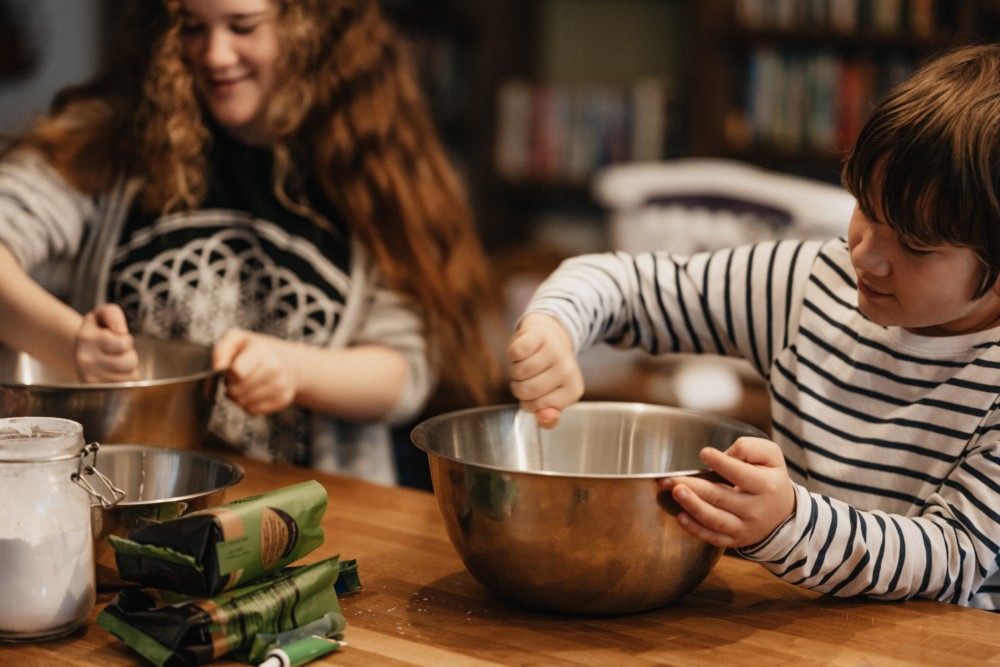
Photo by Annie Spratt on Unsplash
‘Tis the season to be jolly and even though most people are keeping it close to home this year, there are so many ways you can keep your child with special needs happy, healthy, and active this winter. As reported by healthcare experts, Ochsner Health, the benefits of regular physical activity for children with special needs can have a powerfully positive impact on their physical, emotional, and social wellbeing. Food can also play a role in their enjoyment of the festive season so if you are vegan, ensure you serve up special treats that smell, taste, and feel like the most joyous time of the year. Finally, don’t forget to take a few moments to be still; to share the joy of being in ‘the spectacular now’ alongside your child, embracing mindfulness-based activities at the end of your busy, entertaining days.
Delicious Holiday Plant- Based Treats for Your Kids
Your child may have specific needs when it comes to diet – for instance, they may be following a gluten-free, SCD (specific carbohydrate), body ecology (i.e. probiotic-rich), or ketogenic (low-carb) diet. You can still delight them and the rest of the family with dishes that exude the festive spirit – for those with are gluten intolerant, think a raw vegan apple pie (made with a Medjool date and nut crust, super-fine sliced apples, and a delicious fresh orange juice and Medjool date syrup). For those on a ketogenic diet, or any other regimen requiring a low sugar intake, you can concentrate on main meals, gracing your child’s favorite vegetable curry with traditional seasonal spices such as cloves and cinnamon. If your child is on a very specific diet that does not permit spices, then infusing wintery therapeutic-grade essential oils through the home can help make mealtimes a little more wintery.
Staying Active at Winter Time
It can be easy to stay at home and cuddle up by the fireplace in the winter, leaving exercise for later, but physical activity is very important for children with special needs such as mobility issues and emotional and behavioral disorders. Exercise has been found to lower stress, boost cardiovascular fitness and strength, and hone flexibility, as well as battle depression and anxiety. If the weather permits, make sure you take part in fun outdoor activities. If you live in a snowy area, activities like sledding, walking, and/or skiing can be a great workout for children. Those who have limited mobility can try out a few exercises using balls, ropes and other tools found in specialized kits. Children with autism can try out a host of activities that boost their sensory development. These may include indoor sandpits, piano steppers, mazes, and other activities that will also keep them active. Motivating children may be harder in the winter time, but it can be achieved by investing in toys and games that they are naturally drawn to. Keep things celebratory with carols, lights, and other seasonal paraphernalia.
Teaching Children the Importance of Presence
The holidays are also a great time to teach children the importance of mindfulness. Activities such as yoga for kids, beginners’ Tai Chi, or meditation can be a fun way to end the day, but it can also be a first morning activity to put children in a calm and happy mood. You can use apps and dedicated CDs that offer guided meditation activities for children. Some are focused on winter themes and characters, and many can be found for free on YouTube and other social media channels.
If you have a child with special needs, the winter season is the perfect time to enjoy a wide range of activities together. From meditation sessions right through to sledding in the snow, there are many activities that can strengthen your family’s bond while teaching your child new skills. Winter is also about enjoying festive foods, so plan a varied menu that includes traditional recipes that take into account any dietary needs your child may have.
Additional resources for special needs families:

